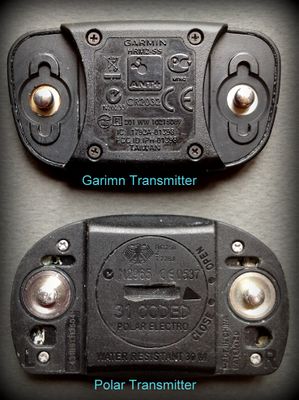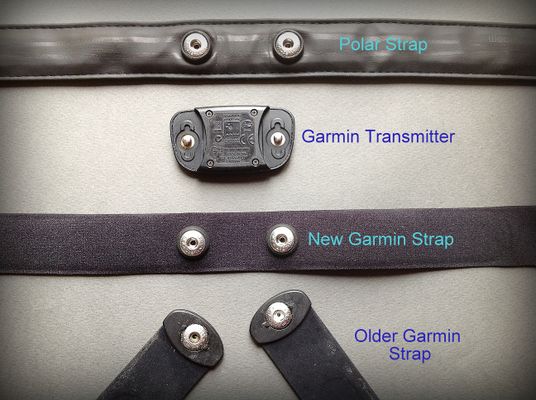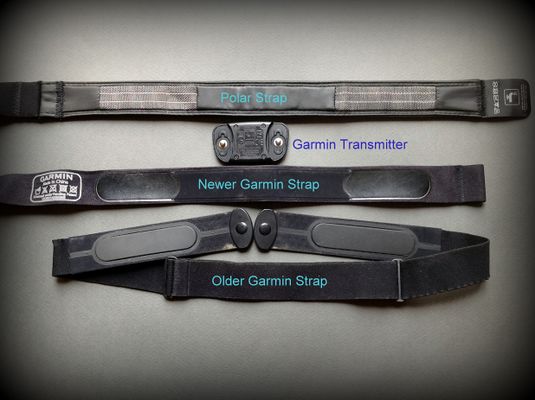Fixing Heart Rate Monitor Problems
From Fellrnr.com, Running tips
Revision as of 17:43, 13 August 2012 by User:Fellrnr (User talk:Fellrnr | contribs)
The Heart Rate Monitoring of Garmin watches is not as reliable as the Polar systems. The latest soft straps are better than earlier generations, but they can still be problematic. A worthwhile upgrade is to purchase a Polar Replacement Strap. The Garmin transmitter fits into the clips of the Polar strap, and you get a much better reading.
Fixing other problems
There are a number of problems you can still get with the Garmin Heart Rate Monitoring
- Make sure you dampen the strap, the electrodes and the contacts between the strap and the transmitter. Just water should work fine, though you can buy electrode gel. The Polar strap should not dry out, unlike the original Garmin strap. If you have the Garmin strap, you can always apply a little spit to wet it while on the run.
- Unlike the Polar system, the contacts on the transmitter tend to rust, so it's important to disconnect the transmitter from the strap after each use. You can see a little of the rust in the picture above.
- If you do get rust, then a wire brush can fix the problem.
- A low battery can result in bad reception, and the watch does not always report a low battery condition properly.
- Interference from overhead power lines used to be a problem, but the modern systems have reduced this dramatically.


